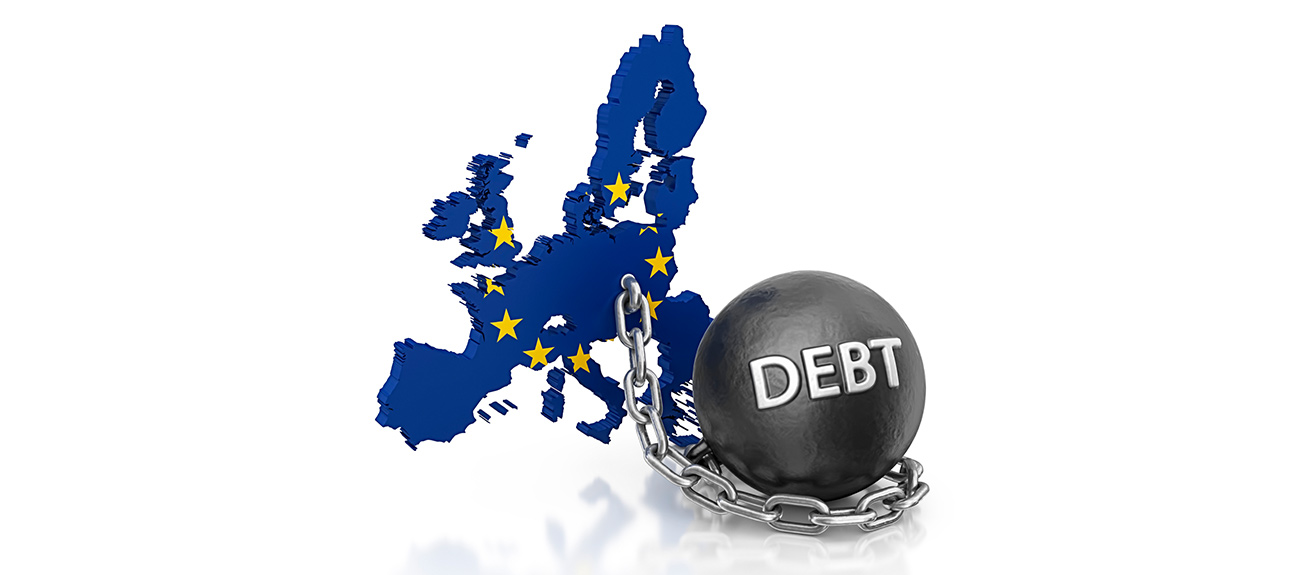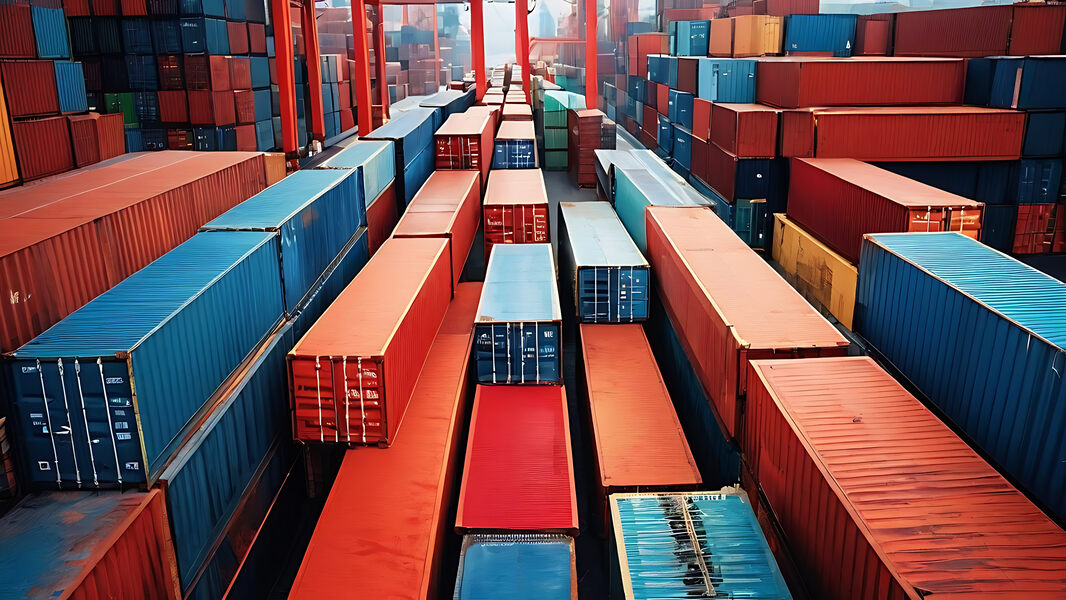More than 40 executives attended this discovery event on the European crisis. Topics included an overview of the macroeconomic European realities and political outlook, contrasting viewpoints from speakers representing the southern countries of Portugal, Spain, and Greece and the implications, challenges, opportunities and business responses from corporations operating within the EU.
With no signs of the European crisis abating, and most economists predicting a further deterioration before any improvement, how should businesses respond? What coping strategies should businesses be employing and what opportunities can be created and developed during these turbulent times?
Current Situation: Globalization and Crisis
The impact of the great recession has been an increased perception of risk across the spectrum of trade and investment activities. The crisis is fostering a significant rethinking – not necessarily of the overall merits of globalization – but of how to better harness it for development ends.
A bit of history
Between 2004 and 2006, low interest rates in the US created easy credit conditions; adjustable rate mortgages enabled families to buy their own houses, and home ownership increased to an all-time high. Banks increasingly used CDOs, a type of asset- backed security, which were sold to investors in the US and in Europe. Because most of the CDOs were assigned safe, triple A ratings by the credit rating agencies, these assets were in high demand. Europeans – who generally prefer less risky investments – bought the majority of the bonds; the rest were bought in the US.
The increasing demand for mortgage assets led to high-risk loans being given to people with no documentation and poor credit histories (NINJAs – no income, no jobs, no assets). By 2006, lending standards in the US had been totally relaxed. When the rates were eventually adjusted in 2007/2008, payments became unsustainable for many families, who began to default on their mortgages.
From banking crisis to political crises
Since the start of the crisis, the European Commission had been practically pleading with governments to spend! Unfortunately, in order to spend money, the governments had to borrow it! Banks and governments in Greece, Italy, Portugal, Spain and Ireland owe each other billions of euros and have even larger debts to Britain, France and Germany. It is not so much a question of bailing out the banks as bailing out the depositors!
The Euro will not collapse
While the benefits of the euro are undeniable, they are not evenly distributed in terms of borrowing costs, competitiveness and trade defi for example. Therefore, Southern European countries will not benefi from exiting the euro area and Northern European countries will not benefit from the collapse of the euro.
The Economics of the Sovereign Debt Crisis
Although there has not yet been a significant turning away from globalization by developing countries or a significant increase in trade protectionism, there have been important changes in the roles and regulation of financial market participants. Governments are playing a much larger role in the global economy. Central banks have adopted unconventional policies, for example quantitative easing, long-term refinancing operations and outright monetary transactions.
Prospects for the world economy
The outlook for the near future is a mixture of good and bad news. On the one hand, commodity prices have moderated and infl pressures are down. There have been rapid recoveries from recent natural disasters (Japan and Thailand). Growth in emerging markets remains strong and so far there are no signs of systemic debt problems in the developing world.
On the other hand, the Eurozone’s struggles continue even though we are in a period of relative calm. There is continuing political uncertainty about the US fiscal/ debt position, growth in the developing world is slow and weak and, moreover, developing countries now have a more restricted fiscal space than in 2008.
Financial crises and sovereign debt problems
Unlike other monetary unions, the euro has no credible fi or banking union. There were already signs of contagion in the first semester of 2012 with CDS spreads rising in some core euro area countries. The banking sector’s exposure to European sovereign debt is still a major issue of concern and there is a lack of consensus on the role of the ECB. The current debt overhang plus fiscal/financial imbalances and limitations on the use of exchange- rate policy constrain growth prospects. Uncertainty can transform temporary liquidity problems into solvency crises.
Currently, we are entering a new chapter in the economic adjustments associated with the Great Recession. Europe and its special brand of institutional arrangements are at the very core of the crisis resolution: Government/EU/ECB/IMF actions have succeeded in buying time for structural reform, but markets are not patient. The ECB will face growing pressures not only from the markets but also from its political masters, particularly its largest shareholder, Germany – especially between now and the federal election in late September. The possibility of additional debt restructuring cannot be dismissed and the danger, albeit remote, of a euro exit from one or some members of the monetary union remains.
It is going to take time, but it is not impossible – both the UK and the US recovered from a debt to GDP ratio of over 100% after World War II.
The Origins of the Sovereign Debt Crisis
There is a perception in the North that the fault lies with the “irresponsible” Southerners. In fact, of the five GIIPS, only two – Greece and Portugal – had irresponsible fiscal policies. Italy’s fiscal policy was worse in the 1980s than it is now but at that time it was able to borrow in its own currency; the Italian government and central bank were able to overcome fiscal policy by printing money. Now, since the accumulated debt is denominated in euros and the ECB will not print money, this is no longer an option.
Spain’s total gross public debt ratio is still lower than that of the UK and yields of British Government bonds are lower than in Spain and much lower now than they were five years ago.
The origins of the sovereign debt crisis were different: In Italy and Greece, for example, the problems stemmed from debt; Italy was experiencing a period of low growth and persistently high public debt. In the case of Ireland and Spain, they were triggered by the housing bubble and banking crisis.
While the remedy – whatever the origin – is always responsible fiscal policy, the problem is that fiscal stability is a long-term issue. The dark side of fiscal adjustment is that it involves public expenditure management, e.g. heavy cuts in capital spending and public investment, which can have an adverse effect on long-term growth prospects.
Doing Business in Europe: The Challenges and Opportunities
Although the euro has been successful financially, it has created social and economic imbalances. Germany’s economy in particular has fared better than those of its weaker partners; the biggest consumers of its exports are the Southern European countries.
One of the major threats to the current global economic model is the tension between democracy and capitalism. Although the corporate governance model works extremely well in China, there is no democracy. Nevertheless, given the strength of the Chinese economy, its economic model may well develop as an alternative for many emerging markets.
A lack of democracy creates inequality and lack of freedom. Inequality is a major threat to the world economy. Currently, we are facing a great deal of social unrest because of high unemployment, austerity programs and low economic growth. If there is no improvement, a whole generation could be impoverished.
A serious problem Europe faces is that in many countries, for example Spain, workers in the public sector earn more than those in the private sector. Thus it is the private workers and college graduates who are paying the cost of the crisis.
According to Professor Bris, the future of the world’s economy lies not in the BRICS but in Europe. The two most important competitive advantages of European companies vis-à-vis emerging economies are 1) the quality of its executives in terms of skilled human capital, values and motivation, and 2) the quality of its institutions.
The solution to the debt crisis requires an attack on three fronts:
- Less “inefficient” government, e.g. “value creation” investments rather than pure expenditure.
- Discipline in banks. We need to capitalize banks, but they need to lend money to small and medium sized businesses and customers.
- Political leadership to discipline financial markets, instead of being disciplined by financial markets.
A Greek Perspective
In terms of purchasing power parity, the Greek economy shrank by around 18% between 2008 and 2012. Greece currently exports about 20% of its GDP and imports about 50% – German euros have paid for many of the BMWs in Greece!
Workers have been hit hard; a huge number of Greek businesses have had to close down and the number of employed people is continuing to drop. In the last fi years youth unemployment has exceeded 50% – a whole generation of workers lost!
The lower and middle classes have been hit the hardest; four million people are living in poverty. Soup kitchens have become commonplace in major cities. People, unable to pay their heating bills, have resorted to illegal logging and burning old books and furniture in wood stoves to keep warm, leading to an inevitable increase in pollution levels.
In terms of political challenges, Greece’s coalition government only has a slim majority and the relationship between the elected and the electorate is not a healthy one. The government is reluctant to implement reforms and suffers from corruption.
Furthermore, the shipping industry has not been doing well in the last few years. Since banks are not lending money, exporting firms are unable to secure financing to buy raw materials and so on. Employees and pensioners are suffering because they are easy to tax.
So, are there any bright lights in the Greek economy? The opportunities are there! A number of Greek-based international firms are currently playing a key role in the country’s growth strategy. The following companies, for example, all use natural resources and with 2012 revenues ranging from €45 million to over €1 billion, are among Greece’s biggest exporters:
- Fage – Greek yogurt
- Folli Follie – luxury goods
- Korres – beauty care products
- Nireus – aquaculture
- Pharmathen – pharmaceuticals.
What now?
While many questions remain unanswered, it is important to note that the euro has been the most significant financial innovation of the 20th century and that there have been some amazing changes in the economies of some of the Eurozone countries since its introduction. However, although the European economy has some of the best institutions to deal with the crisis, there are still a number of issues that need to be tackled: banks need to start playing an active role in lending money to stakeholders in the economy to promote future growth, firms need to develop an export strategy and governments need to create more incentives for workers to enter the private sector rather than the public sector.
OTE: A Greek Success Story
OTE is the leading telecommunications group in SE Europe with presence in four markets. The group started as a government organization but since 2011 Deutsche Telekom has been the controlling shareholder with 40%; the Greek State currently owns 10%. The company provides state-of-the-art fixed/mobile/broadband as well as television services in an overall market of 46 million people. It has subsidiaries in Albania, Bulgaria and Romania and employs some 30,000 people.
Most of OTE’s revenues come from Greece. Although, revenues are decreasing, EBITDA is still high. During the crisis, OTE Group’s CEO stated that the company’s No. 1 priority was to reduce debt to the lowest possible level. One of its main cost-cutting measures was an agreement with trade unions to cut salaries for a period of three years, without making any job cuts. Employees agreed to work for one less hour per day and 1,500 people took voluntary redundancy.
The company also began to look for pockets of growth, for example pay television. It launched satellite Pay TV services under the brand name OTE TV, offering over 70 channels. Content delivery is driven by customer needs for qualitative and interactive media, and OTE’s future plans include launching interactive and multi-platform media from 2014.
George Gabritsos, Chief Officer BU, OTE TV
Discovery Events are exclusively available to members of IMD’s Corporate Learning Network. To find out more, go to www.imd.org/cln









